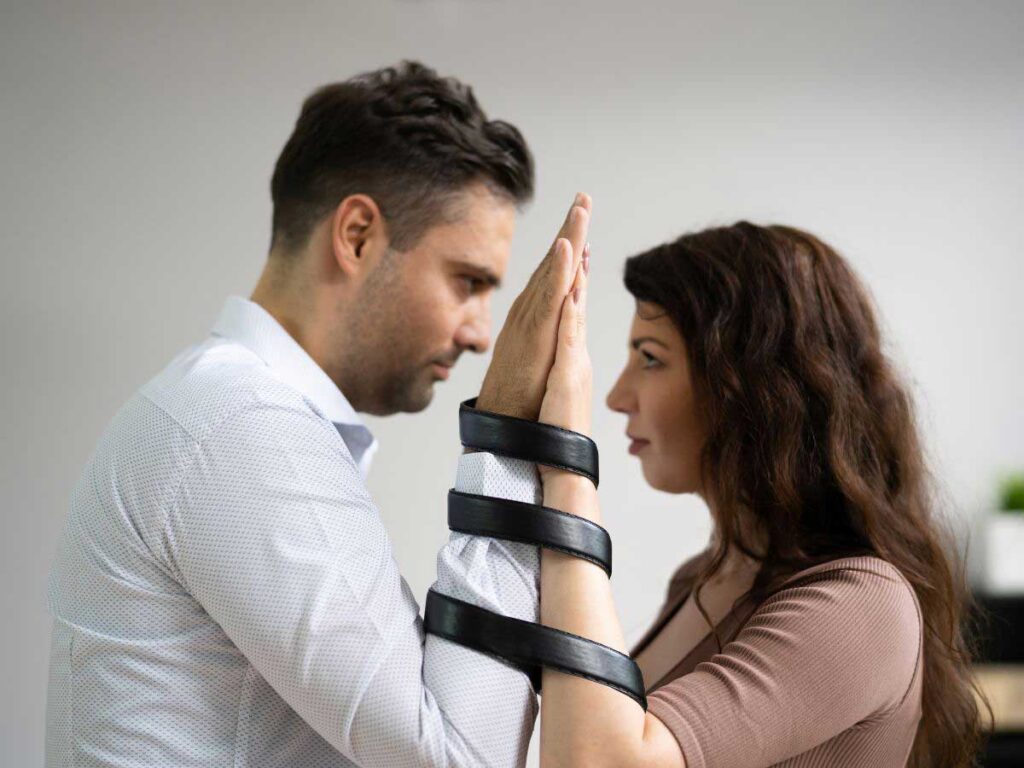
When two people decide to start a relationship (ideally speaking, a relationship for life), they should come into the relationship as complete individuals, or mathematically speaking an individual = 1. They should not be satisfied with being half-complete (or mathematically 0.5 out of 1) or otherwise incomplete.
This may not always be realistic, as human beings are forever incomplete by design and always have something to work on or improve upon, but we should strive to be as complete as possible. Our incompleteness should not be a reason for unhappiness, as it is a natural state of ourselves and the world. Therefore, I will still refer to every individual as a complete individual (=1) because our incompleteness is already accounted for.
In this way, when two people come together, there are four different scenarios:
a) 1 + 1 = 2, also known as independence. In this case, the individuals are self-reliant and function autonomously. They do not bring anything to each other’s lives and do not take or give to the relationship in any way.
b) 1 + 1 = 1.5, also known as dependence. In this case, one person excessively relies on the other, often sacrificing their own boundaries and needs for the sake of the other person. This is to the detriment of both individuals.
c) 1 + 1 = 1, also known as codependency. This is the worst case scenario, where both individuals take more from each other’s lives than what they give. It is recommended for both people to go their separate ways, as being together creates more problems than it’s worth.
d) 1 + 1 = 3 (or more!), also known as interconnectedness. This is the ideal scenario, where both people create more than what they could independently do.

Personally, I know myself to be an extrovert, meaning that I thrive in social situations, enjoy being around people, and gain energy from interacting with others. This doesn’t mean that I can’t be an introvert at times, wanting to distance myself from everyone and everything to recharge my batteries. However, being an extrovert is my psychological predisposition and I am an extrovert most of the time.
In this way, my perfect psychological counterpart is an introvert, as this person helps me find a healthy balance. While theoretically, I could get along with another extrovert, two extroverts can encourage each other to engage in progressively more extreme behaviors, leading to dangerous decisions. On the other hand, two introverts can isolate themselves from the world, which is also unhealthy. An extrovert and an introvert can push each other towards a healthier balance. Of course, people are more complex than just introverts or extroverts, but when it comes to finding someone who can complement us, this psychological division makes sense on many different levels.
This extroversion / introversion plays into the idea of being forever incomplete, but at the same time, we should never expect others to give more than we give in return (mathematically >1), as this is unrealistic and unfair. If we are incomplete, why should others fix us or complete us if we can’t do it for ourselves? This will only lead to dependence or codependency.
What we should do is strive to become as self-sufficient as possible and provide for ourselves without relying on anyone else (=1). Once we have achieved this, we can enter into relationships where we can achieve even greater results together than we could individually. This ideal relationship is one of interconnectedness, where both individuals are already giving their best efforts and still achieve even greater personal fulfillment.














